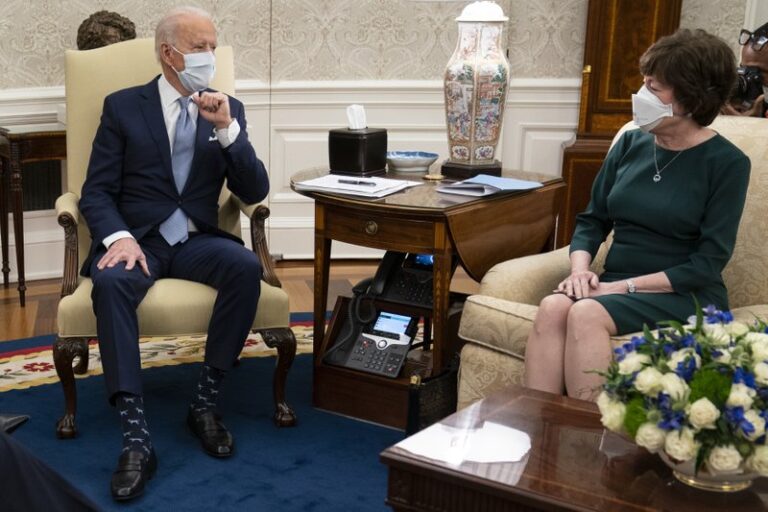
(AP) — President Joe Biden met for two hours late Monday with a group of Republican senators who have proposed a slimmed down $618 billion coronavirus aid package that is only a fraction of the $1.9 trillion he is seeking. Skeptical Democrats vowed to push ahead in Congress with or without GOP support.
No compromise was reached from the lengthy session, Biden’s first with lawmakers at the White House. But the Republicans said there was agreement to keep discussions going over their smaller, more targeted package that would do away with Democratic priorities but might win GOP support and appeal to Biden’s hopes to unify the country.
“All of us are concerned about struggling families, teetering small businesses and an overwhelmed health care system,” said Sen. Susan Collins of Maine, a leader of the effort, flanked by the other GOP senators outside the White House.
She called it a “frank and very useful” conversation, noting that the president also filled in some details on his proposal.
The two sides are wide apart, with Republicans focused primarily on the health care crisis, tapping into bipartisan urgency to shore up the nation’s vaccine distribution and vastly expand virus testing with $160 billion in aid. That is similar to what Biden has proposed. But from there, the two plans drastically diverge. With less economic aid, the GOP’s $1,000 direct payments would go to fewer households than the $1,400 Biden has proposed, and the Republicans offer only a fraction of what he wants to reopen schools.
They also would give nothing to states, money that Democrats argue is just as important, with $350 billion in Biden’s plan to keep police, fire and other workers on the job.
Gone are Democratic priorities such as a gradual lifting of the federal minimum wage to $15 an hour.
Wary Democrats pushed ahead at the Capitol despite the high-profile White House talks, unwilling to take too much time courting GOP support that may not materialize or delivering too meager a package that they believe doesn’t address the scope of the nation’s pandemic crisis and economic problems.






